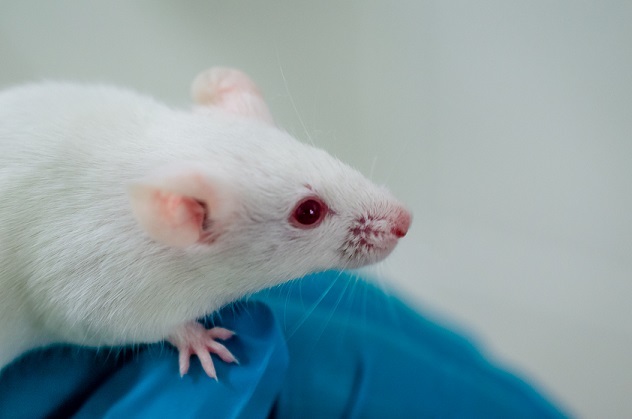
 Data Structure
Data Structure Networking
Networking RDBMS
RDBMS Operating System
Operating System Java
Java MS Excel
MS Excel iOS
iOS HTML
HTML CSS
CSS Android
Android Python
Python C Programming
C Programming C++
C++ C#
C# MongoDB
MongoDB MySQL
MySQL Javascript
Javascript PHP
PHP
- Selected Reading
- UPSC IAS Exams Notes
- Developer's Best Practices
- Questions and Answers
- Effective Resume Writing
- HR Interview Questions
- Computer Glossary
- Who is Who
Biotechnology: Social, Legal, and Ethical Issues
Introduction
Biotechnology is a field of science that involves the use of living organisms, biological systems, and processes to develop new products and technologies.
It has transformed the way we produce food, medicines, and industrial materials, and has opened up new opportunities for research and innovation.
However, biotechnology also raises a range of social, legal, and ethical issues that need to be addressed. In this article, we will examine some of the key issues in biotechnology, and discuss their implications for society.
Social Issues in Biotechnology
One of the main social issues in biotechnology is access to its benefits. While biotechnology has the potential to improve people's lives in many ways, it is often expensive and inaccessible to those who need it most.
For example, new drugs developed using biotechnology are often priced out of the reach of people in developing countries, leading to a global health equity gap.

Another social issue in biotechnology is the impact it has on traditional industries and livelihoods. For example, the use of genetically modified crops can disrupt traditional farming practices and harm small-scale farmers.
In addition, the use of biotechnology in the production of industrial materials can lead to the displacement of workers in traditional manufacturing industries.
Another social issue is the potential for biotechnology to widen the gap between rich and poor countries. If developed countries control the patents for new biotechnologies, they may be able to maintain a technological advantage over developing countries, which could lead to economic and political inequality.
Legal Issues in Biotechnology
Biotechnology raises a number of legal issues, including intellectual property rights, bioethics, and regulatory oversight. One of the main legal issues is the protection of intellectual property rights.
Biotechnology companies invest millions of dollars in developing new products and technologies, and they want to protect their investments by obtaining patents for their inventions.

However, the patenting of biological materials is a controversial issue, as some argue that it leads to the privatization of life and limits access to scientific knowledge.
Another legal issue in biotechnology is bioethics. Biotechnology often involves the use of living organisms and biological materials, which raises ethical questions about the use of these resources.
For example, the use of embryonic stem cells for research is a highly controversial issue, as it raises questions about the rights of the embryo and the potential for misuse of the technology.
Regulatory oversight is another important legal issue in biotechnology. The development of new biotechnologies is often subject to strict regulatory oversight to ensure that they are safe and effective. However, the regulatory process can be slow and cumbersome, which can impede innovation and limit access to new technologies.
Ethical Issues in Biotechnology
Biotechnology raises a range of ethical issues, including questions about the use of genetic information, the potential for unintended consequences, and the impact on biodiversity. One of the main ethical issues is the use of genetic information.
Biotechnology has made it possible to sequence the human genome and identify genes associated with certain diseases and traits. While this has the potential to improve health outcomes, it also raises questions about privacy and discrimination.
Another ethical issue in biotechnology is the potential for unintended consequences. Biotechnology often involves the use of living organisms and biological materials, which can have unintended consequences for the environment and public health.

For example, the release of genetically modified organisms into the environment could have unintended ecological consequences.
The impact on biodiversity is another important ethical issue in biotechnology. Biotechnology can be used to manipulate the genetic makeup of living organisms, which could have an impact on the diversity of species and ecosystems.
For example, the introduction of genetically modified crops could lead to the displacement of traditional crop varieties, which could have a negative impact on biodiversity.
Conclusion
Biotechnology has the potential to transform the way we live, but it also raises a range of social, legal, and ethical issues that need to be addressed.
Access to its benefits, impact on traditional industries and livelihoods, and potential for economic and political inequality are some of the social issues that need to be addressed. Legal issues such as intellectual property rights, bioethics, and regulatory oversight also need to be tackled to ensure that the benefits of biotechnology are accessible to all while maintaining safety standards.
Ethical issues such as the use of genetic information, unintended consequences, and impact on biodiversity also require careful consideration to ensure that biotechnology is used in a responsible manner.
To address these issues, there needs to be a collaborative effort between biotechnology companies, regulatory bodies, governments, and the public.
Biotechnology companies need to prioritize social responsibility and ethical practices while developing new products and technologies. Regulatory bodies need to ensure that biotechnology is subject to strict oversight while also facilitating innovation.
Governments need to create policies and frameworks that promote social equity, economic growth, and environmental sustainability. The public needs to be informed and engaged in the biotechnology discourse to ensure that their voices are heard and their concerns addressed.
In conclusion, biotechnology is a field of science that has the potential to revolutionize our world, but it also raises a range of social, legal, and ethical issues that need to be addressed.
To fully realize the benefits of biotechnology, we need to work together to create a sustainable, equitable, and responsible biotechnology future.

